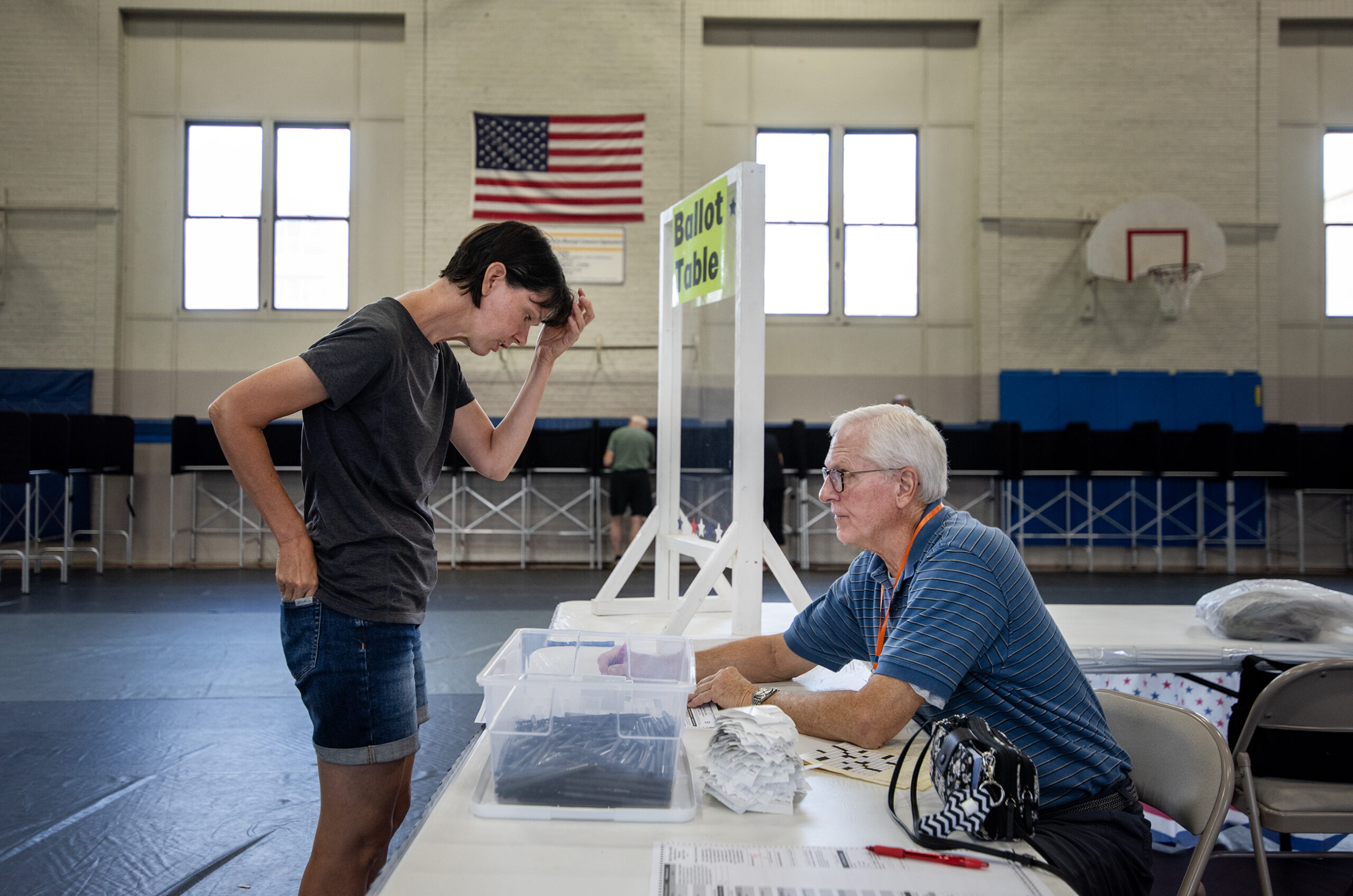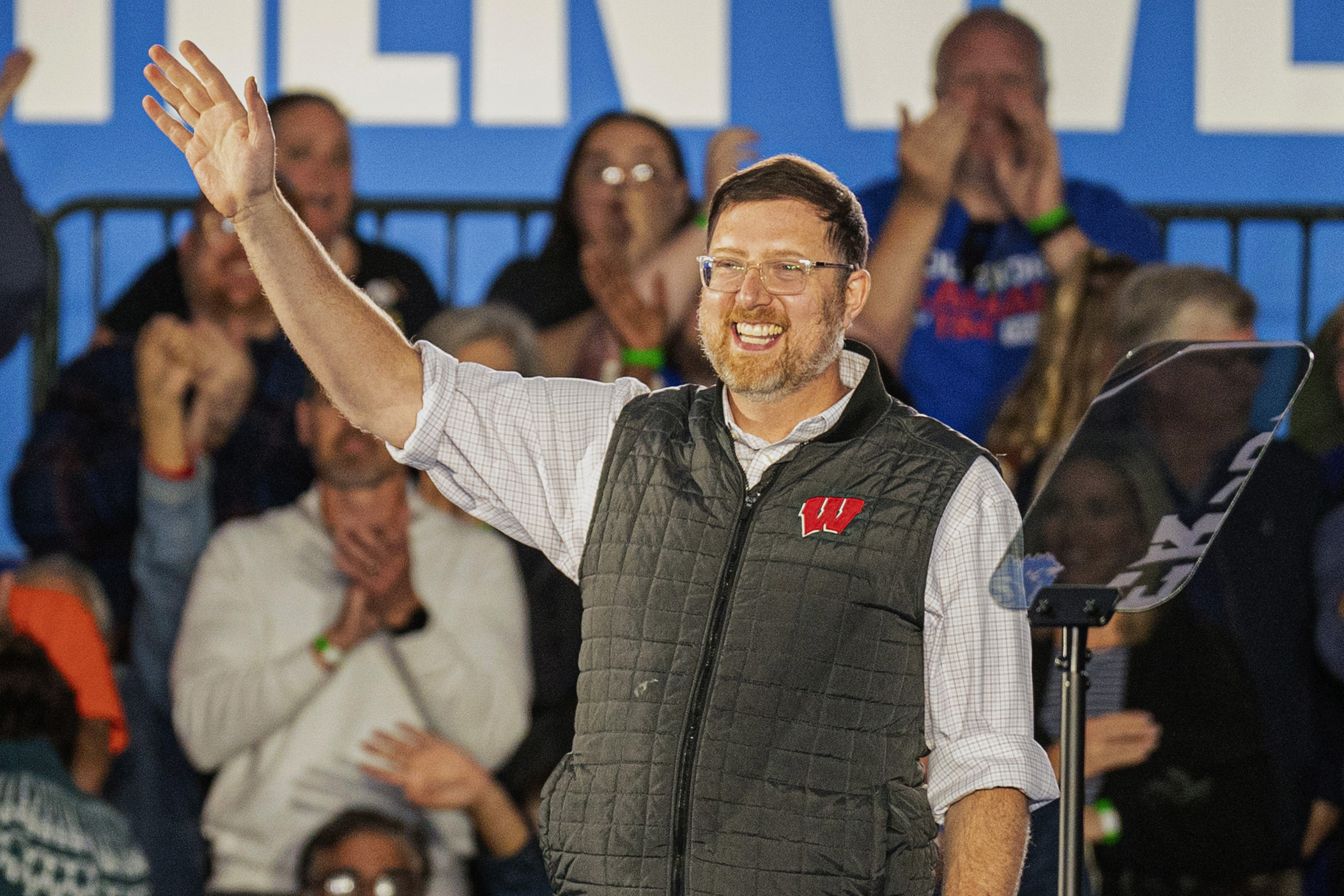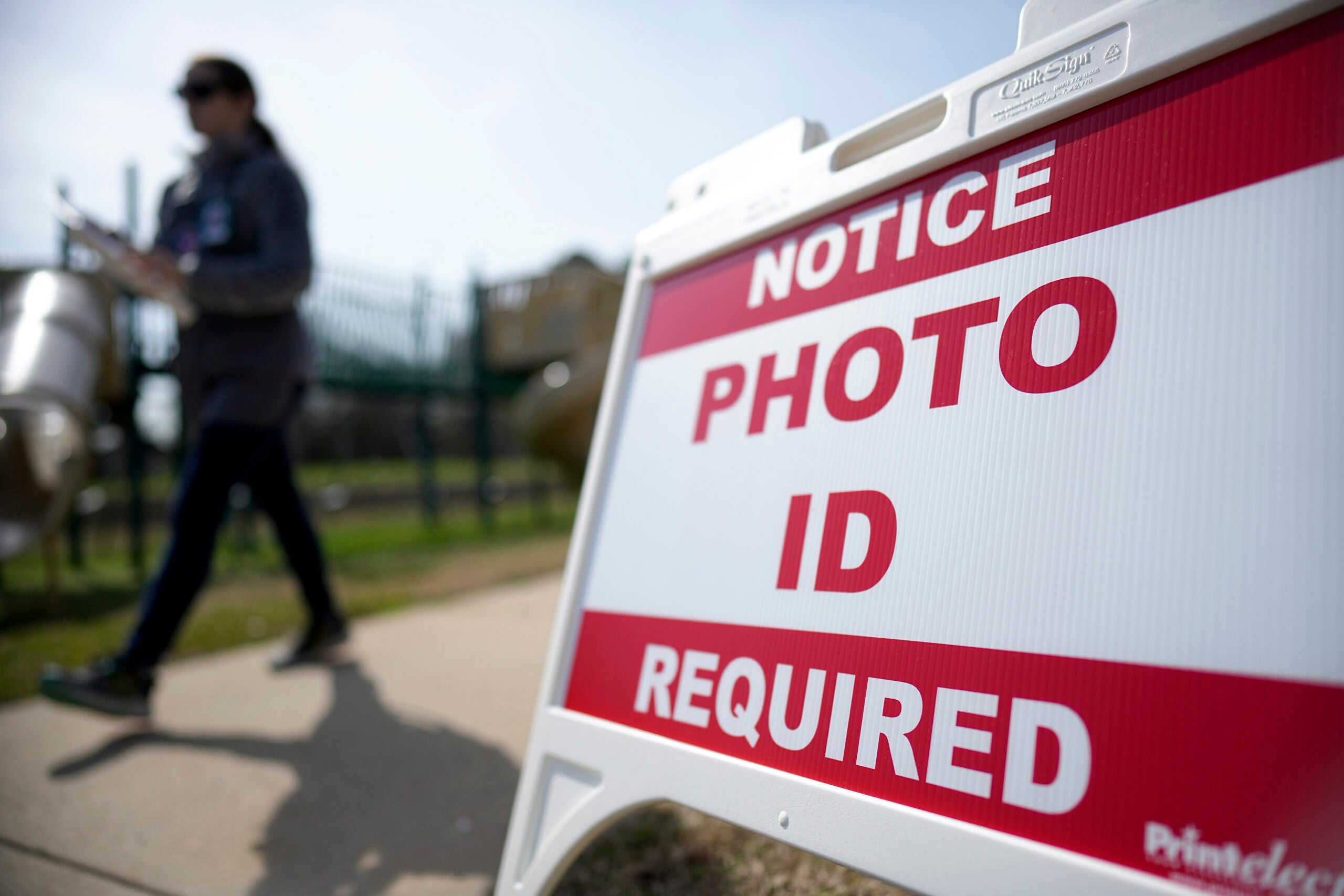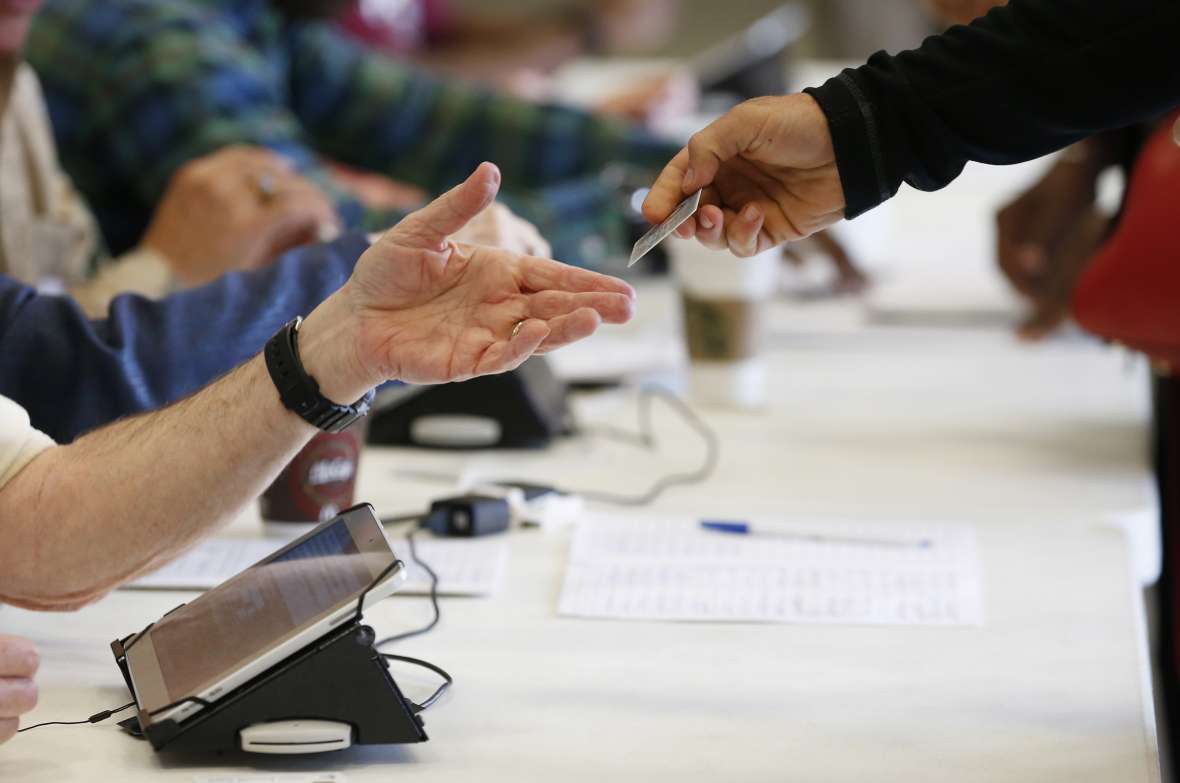Wisconsin Democrats are celebrating the lopsided defeat of two Republican-backed referendums Tuesday, saying the results bode well for November’s general election.
The referendums would have amended the state constitution to require a governor to get legislative approval before spending federal funds on things like disaster response.
According to unofficial results posted by the Associated Press, both proposals failed by margins of 15 percentage points.
Stay informed on the latest news
Sign up for WPR’s email newsletter.
The outcome was unusual for constitutional amendments, which typically pass.
In April, for example, voters approved two referendums that amended the Wisconsin Constitution to bar local clerks from using private grants or private employees to run elections. They passed by margins of about 9 and 17 percentage points.
Speaking to WPR at this year’s Farm Technology Days in Cadott, Democratic Party of Wisconsin Chair Ben Wikler said referendum questions normally “just sail through.” But this year, he said the state party, and groups like Wisconsin Conservation Voters, Wisconsin Farmers Union and the Wisconsin League of Women Voters hammered a “Vote No” message for months.
“So, they all said ‘no’ with one voice and the result was that, for voters that voted in August, they knew what these amendments were about,” said Wikler. “They knew there was a reason to get out and cast a ballot, and overwhelmingly, they rejected these constitutional amendments and affirmed that they want a governor to do what Gov. Evers has done, which is to make use of federal emergency funds to actually help people in the state get through hard times.”
Wikler said the overwhelming response from voters was surprising, even to him.
“I think this will be a big jolt of enthusiasm, and I think it bodes well for the chance for Democrats to win up and down the ballot,” Wikler said.
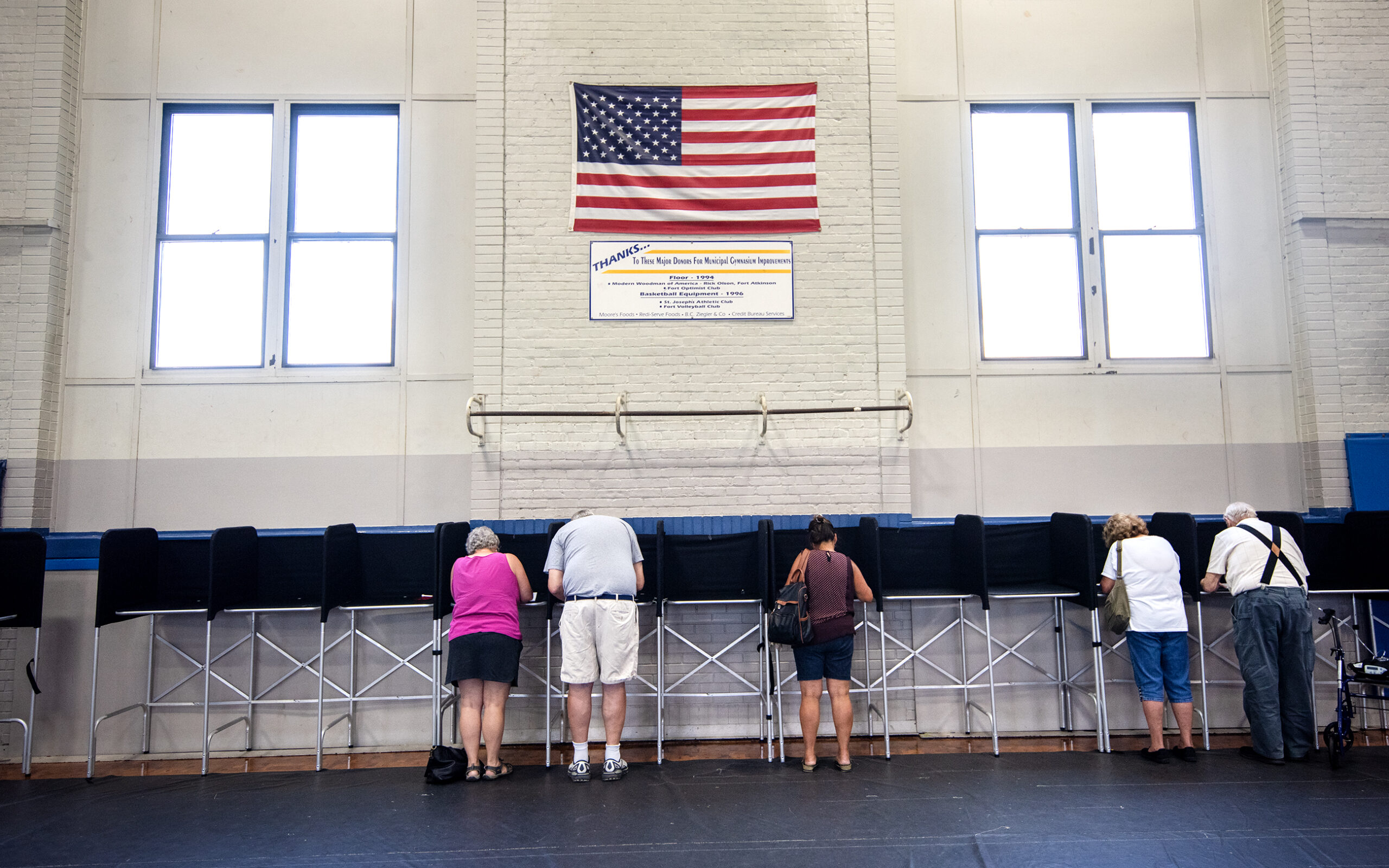
Republican state Rep. Robert Wittke, R-Racine, was one of the lead sponsors of the resolution that led to Tuesday’s amendment questions. In a written statement, he said he’s disappointed with the result.
“This was not a partisan issue but one that sought to promote good governance in spending undesignated federal dollars that come into the state,” said Wittke. “Supporters of good governance were outspent by those who exaggerated the intent of the questions — and our message failed. It’s unfortunate, but we gave the people a chance to decide and now we move on.”
Rick Esenberg, who heads the conservative Wisconsin Institute for Law and Liberty, blamed the loss on “out-of-state, far-left special interests” who he said “flooded the airwaves with misleading ads to influence decision making in Wisconsin.”
Wikler contends criticisms from Republicans about Democrats misleading voters “is a little rich.” He said the ballot questions were written in a way to confuse voters, and they were put on the August primary ballot by Republicans in hopes of getting a victory in a typically low-turnout election.
Instead, Democrats from the state to local level organized against them. Gloria Hochstein, who chairs the Wisconsin Democratic Party’s rural caucus, said that in the April election, the party didn’t pay enough attention to referendums.
“I think in April, we were blindsided,” she said. “We didn’t get busy worrying about those amendments that were on the April ballot until weeks before the ballots were coming out.”
Hochstein said she and other Democratic party leaders “learned our lesson” when they found out about the upcoming questions. At the state Democratic Party’s annual convention in June, an administrative committee voted to endorse a campaign aimed at getting people to “vote no” on Aug. 13, which paid off.
“I think voting no on the amendment was a unifying thing that brought people out to vote,” said Hochstein. “Even people who didn’t have a primary.”
Wisconsin Public Radio, © Copyright 2025, Board of Regents of the University of Wisconsin System and Wisconsin Educational Communications Board.
